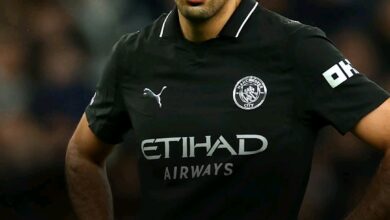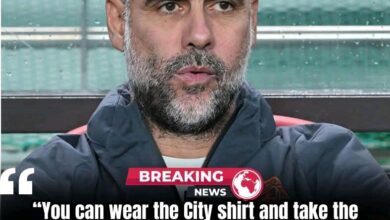
As the summer transfer window approaches, Arsenal Football Club finds itself at a critical juncture. The North London giants, who have tantalizingly come close to Premier League glory in recent seasons only to fall short at the final hurdle, are actively seeking reinforcements to bridge the gap between ambition and achievement. The Gunners’ transfer strategy appears to be taking an increasingly pragmatic turn, with the club identifying value-driven alternatives to some of Europe’s most coveted talents.
Central to this evolving strategy is Arsenal’s reported interest in Feyenoord’s Brazilian sensation Igor Paixao, a 24-year-old attacking dynamo who has taken the Eredivisie by storm. According to comprehensive reports from The Times, Arsenal have positioned Paixao as a viable alternative to more expensive targets such as Athletic Bilbao’s Nico Williams and Bayern Munich’s Leroy Sané. This strategic pivot reflects not only the club’s financial prudence but also their keen eye for identifying emerging talent before it reaches premium valuation levels.
The pursuit of Paixao represents more than just a simple transfer target; it embodies Arsenal’s broader philosophy of combining immediate impact with long-term potential. In an era where transfer fees have reached astronomical heights, finding players who can deliver exceptional performance metrics while remaining financially accessible has become paramount for clubs seeking sustainable success.
Igor Paixao’s meteoric rise in European football reads like a carefully crafted success story. The 24-year-old Brazilian has transformed himself from a promising South American prospect into one of the continent’s most sought-after attacking talents through a combination of technical brilliance, tactical intelligence, and an unwavering commitment to excellence.
During the 2023-24 season, Paixao delivered numbers that few could have predicted when he first arrived in Rotterdam. His tally of 16 goals in league competition alone would be impressive for any attacking player, but when combined with his 14 assists, it paints the picture of a truly complete forward capable of both creating and finishing at the highest level. These statistics place him firmly in the category of elite European attackers, with his combined 30 goal contributions representing the kind of output that transforms teams from competitors into champions.
The significance of Paixao’s achievements extends beyond mere statistics. His recognition as the Dutch Footballer of the Year serves as validation from peers, coaches, and journalists who witness his performances week in and week out. This accolade, traditionally reserved for the most impactful players in one of Europe’s most competitive leagues, underscores the transformative effect Paixao has had on both Feyenoord’s fortunes and the broader Dutch football landscape.
What makes Paixao’s success even more remarkable is the manner in which he has adapted to European football. The transition from South American to European football has proven challenging for countless talented players, yet Paixao has not merely survived this transition – he has thrived. His ability to understand and execute complex tactical systems while maintaining the flair and creativity that defines South American football represents the best of both worlds
Arsenal’s interest in Igor Paixao is rooted in more than just impressive statistics; it reflects a deep understanding of how the Brazilian’s skill set would complement Mikel Arteta’s tactical philosophy. The Spanish manager has consistently emphasized the importance of technical proficiency, tactical flexibility, and creative intelligence – qualities that Paixao possesses in abundance.
From a technical standpoint, Paixao’s ball-striking ability stands out as particularly exceptional. His 16 goals across various situations – from set pieces to open play, from close range to distance – demonstrate a striker’s instinct combined with a midfielder’s vision. This versatility in goal-scoring situations makes him particularly valuable in Arsenal’s system, where attacking players are expected to contribute from multiple positions and scenarios.
Paixao’s assist record reveals another dimension of his game that would prove invaluable at Arsenal. His 14 assists suggest a player who understands when to be selfish and when to be selfless – a quality that has sometimes been lacking in Arsenal’s attacking play. The ability to create opportunities for teammates while remaining a constant goal threat himself would add a new dynamic to Arsenal’s offensive arsenal.
The Brazilian’s work rate and pressing intensity align perfectly with Arsenal’s high-energy approach under Arteta. Modern football demands that attacking players contribute defensively, and Paixao’s performances for Feyenoord suggest a player willing to track back and engage in defensive duties when required. This tactical discipline, combined with his natural attacking instincts, makes him an ideal fit for Arsenal’s system
Arsenal’s identification of Paixao as an alternative to more expensive options represents astute market positioning. Both Nico Williams and Leroy Sané, while undoubtedly talented, command transfer fees that could potentially limit Arsenal’s ability to strengthen other areas of the squad. Williams, in particular, has attracted interest from numerous elite clubs, inflating his potential transfer fee to levels that might not represent optimal value.
Sané, despite his undeniable quality and Premier League experience, represents a significant financial commitment that extends beyond the initial transfer fee. His wage demands and the competition for his signature from other top European clubs make him a risky proposition for a club that must balance ambition with financial sustainability.
Paixao, by contrast, offers the opportunity to acquire similar levels of production at a fraction of the cost. His current status as a rising star rather than an established superstar means Arsenal could potentially secure his services for a fee that allows for additional reinforcements in other positions. This approach reflects the kind of strategic thinking that has characterized successful transfer strategies throughout football history.
The competition for Paixao’s signature, while present, remains manageable. Links with Leeds United and Liverpool suggest interest from quality clubs, but neither represents the immediate threat that competition from clubs like Manchester City or Real Madrid would pose. This gives Arsenal a realistic opportunity to secure their target without entering into a bidding war that could undermine the financial logic of the move.
Arsenal’s pursuit of attacking reinforcements stems from recognizable patterns in their recent performances. While the team has shown remarkable progress under Mikel Arteta, there have been periods where their attacking play has lacked the cutting edge necessary to break down well-organized defenses. This issue has been particularly pronounced in high-pressure situations where clinical finishing and creative brilliance become paramount.
Gabriel Martinelli, despite his undoubted talent and potential, has experienced inconsistency that has frustrated both fans and management. His performances have oscillated between brilliant and pedestrian, lacking the sustained excellence required for a title-challenging team. While Martinelli remains a valuable asset with significant potential, the addition of quality competition would likely elevate his own performance levels while providing tactical alternatives for Arteta.
The broader context of Arsenal’s attacking struggles extends beyond individual performances to systemic issues. The team has occasionally appeared predictable in their approach play, with opponents successfully neutralizing their preferred patterns of attack. Paixao’s arrival would introduce new tactical dimensions, forcing opponents to prepare for additional threats while giving Arteta greater flexibility in team selection and tactical approach.
Arsenal’s recent title challenges have highlighted the fine margins that separate success from disappointment. In both their near-miss campaigns, there were crucial moments where additional attacking quality might have made the difference. The ability to change games from the bench or rotate key players without significant drop-off in quality represents the kind of squad depth that characterizes championship-winning teams.
When evaluating Paixao’s potential impact at Arsenal, it’s essential to consider how his profile compares to the club’s current attacking options. Gabriel Martinelli, Bukayo Saka, and Gabriel Jesus each bring distinct qualities to Arsenal’s attack, but none possess the exact combination of attributes that Paixao offers.
Martinelli’s pace and directness make him a constant threat, but his decision-making and final product have been inconsistent. Paixao’s superior assist numbers suggest better decision-making in the final third, while his goal-scoring record indicates greater clinical efficiency. The Brazilian’s experience as a primary focal point of attack could prove valuable in situations where Arsenal need a player to take individual responsibility for creating and finishing chances.
Bukayo Saka represents Arsenal’s most consistent attacking threat, but his versatility sometimes masks the need for specialist qualities in specific positions. While Saka can play effectively across multiple positions, having a player like Paixao who can provide similar production from different areas of the pitch would allow Saka to focus on his most effective role while providing tactical flexibility.
Gabriel Jesus brings work rate and tactical intelligence but has struggled with consistency in front of goal since his arrival from Manchester City. Paixao’s superior goal-scoring record in a comparable league suggests he might offer the clinical edge that Jesus has sometimes lacked. The combination of creativity and finishing that Paixao demonstrates could prove particularly valuable in tight games where single moments of quality determine outcomes.
The financial aspect of Arsenal’s interest in Paixao cannot be understated in the context of modern football economics. With Financial Fair Play regulations becoming increasingly stringent and transfer fees continuing to escalate, identifying players who offer exceptional value has become crucial for sustained success.
Paixao’s current market position represents the sweet spot that astute clubs seek to exploit. His performances have been outstanding enough to generate genuine interest from top clubs, yet his relatively modest profile means he hasn’t yet commanded the premium prices associated with established stars. This timing could prove crucial for Arsenal, offering them the opportunity to secure a player who could develop into a world-class talent at a fraction of his potential future value.
The economic benefits extend beyond the initial transfer fee. Paixao’s age profile suggests he would retain significant resale value throughout his prime years, providing Arsenal with both sporting and financial flexibility. Should he continue his developmental trajectory, Arsenal could potentially recoup their investment many times over while benefiting from his peak years.
Furthermore, the reasonable transfer fee would allow Arsenal to strengthen multiple areas of the squad rather than committing disproportionate resources to a single position. This balanced approach to team building has historically proven more successful than placing all resources behind individual marquee signings.
Mikel Arteta’s tactical system at Arsenal emphasizes positional flexibility, quick transitions, and creative interplay in the final third. Paixao’s skill set appears ideally suited to these requirements, offering the Spanish manager additional tactical options and strategic flexibility.
In Arsenal’s preferred 4-3-3 formation, Paixao could operate effectively in any of the front three positions. His goal-scoring record suggests he could fulfill the central striker role when required, while his creativity and pace make him equally effective on either flank. This versatility would prove invaluable throughout a long season, allowing Arteta to rotate players, respond to injuries, and adapt tactics based on specific opponents.
Paixao’s pressing and defensive contribution would integrate seamlessly with Arsenal’s high-intensity approach. Modern wingers and attacking midfielders are expected to contribute significantly to defensive phases, and Paixao’s work rate with Feyenoord suggests he understands and embraces these responsibilities.
The Brazilian’s technical ability in tight spaces would prove particularly valuable against teams that employ low defensive blocks – a tactical challenge that has occasionally frustrated Arsenal in recent seasons. His combination of skill, vision, and clinical finishing could provide the breakthrough moments that transform draws into victories and narrow defeats into comeback wins.
Arsenal’s interest in Paixao reflects broader strategic thinking about sustainable team building and long-term competitiveness. Rather than pursuing short-term fixes or aging superstars, the club appears focused on acquiring players who can contribute immediately while offering significant potential for future development.
At 24, Paixao represents the ideal age profile for Arsenal’s current project. He possesses sufficient experience and maturity to make an immediate impact while retaining room for growth and improvement. This balance between present capability and future potential aligns perfectly with Arsenal’s timeline for challenging consistently at the highest level.
The Brazilian’s adaptation to European football eliminates many of the risks associated with players making their first transition from South American leagues. His proven ability to perform at a high level in the Eredivisie suggests he possesses the physical and mental attributes necessary for Premier League success.
Arsenal’s pursuit of Igor Paixao represents more than a simple transfer target; it embodies the club’s evolution into a strategically sophisticated organization capable of identifying and securing exceptional value in the transfer market. The Brazilian’s outstanding performances for Feyenoord, combined with his reasonable transfer fee and perfect age profile, make him an ideal target for a club seeking to bridge the gap between ambition and achievement.
The 30 goal contributions that Paixao delivered during his remarkable season in the Netherlands demonstrate the kind of productive consistency that Arsenal have sometimes lacked in crucial moments. His recognition as the Dutch Footballer of the Year validates his exceptional ability while suggesting his potential for even greater achievements in a more competitive environment.
For Arsenal, securing Paixao’s signature would represent a statement of intent about their commitment to intelligent team building and strategic transfer activity. Rather than pursuing glamorous but expensive alternatives, the club appears focused on identifying players who offer exceptional value while fitting perfectly into their tactical and cultural framework.
The competition from clubs like Liverpool and Leeds United only serves to validate Arsenal’s assessment of Paixao’s potential. However, Arsenal’s current trajectory and the opportunity to compete for major trophies immediately could prove decisive factors in convincing the Brazilian to choose the Emirates Stadium as his next destination.
As Arsenal prepare for what they hope will be a title-winning campaign, the addition of a player like Igor Paixao could provide the final piece of the puzzle. His combination of goals, assists, and tactical versatility addresses several of the team’s current needs while offering the kind of long-term value that characterizes the most successful transfer strategies.
The summer transfer window will ultimately determine whether Arsenal can convert their interest into a successful acquisition, but their identification of Paixao as a target demonstrates the kind of strategic thinking that separates successful clubs from also-rans. For a club with championship ambitions, sometimes the difference between success and failure lies not in the most expensive signings, but in the smartest ones.















